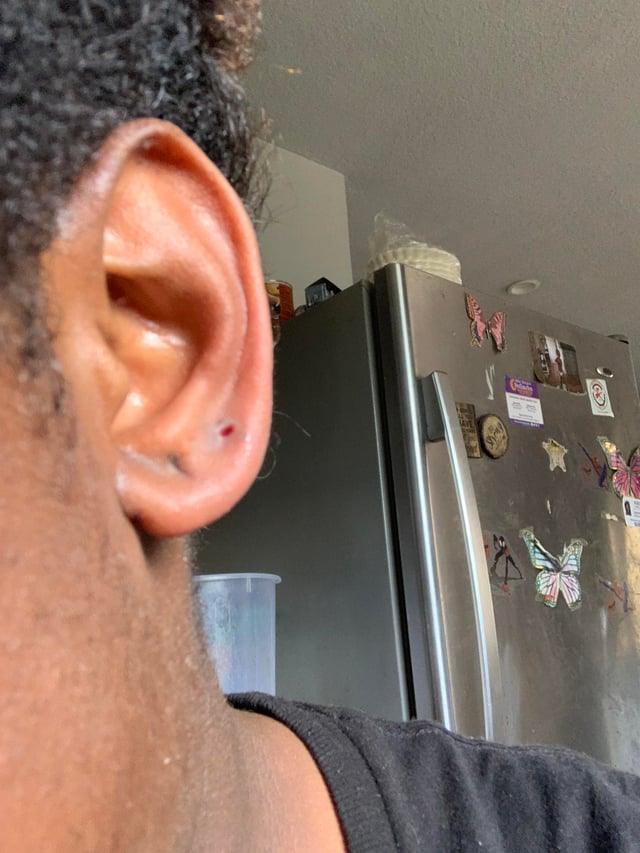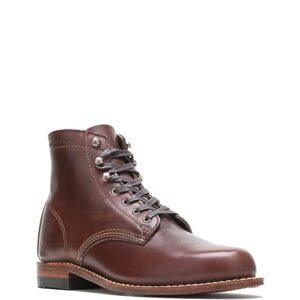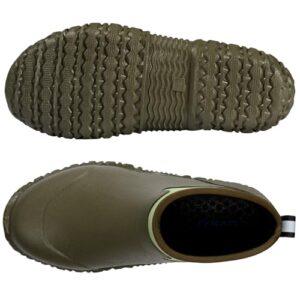Have you ever noticed your ear bleeding after wearing earrings and wondered why it happens? It’s confusing and can be a bit scary, especially when you don’t expect it.
You might think it’s just a small issue, but ignoring it could lead to bigger problems. You’ll discover the common reasons behind ear bleeding caused by earrings and learn simple steps to protect your ears. Keep reading—you deserve to enjoy wearing your favorite earrings without pain or worry.

Credit: www.reddit.com
Common Causes Of Ear Bleeding
Allergic reactions to metalslike nickel cause redness, itching, and bleeding. Some earrings contain metals that irritate sensitive skin.
Infections from piercinghappen if the hole is not clean. Bacteria grow and cause pain, swelling, and sometimes bleeding.
Trauma and irritationoccur when earrings are pulled or tugged. This can tear the skin and cause bleeding.
Poor hygiene practicesincrease infection risk. Not cleaning earrings or pierced skin leads to dirt buildup and bleeding.
Skin conditionslike eczema or psoriasis can make ear skin fragile. Wearing earrings may cause cracks and bleeding.
Types Of Earrings That Cause Problems
Cheap or low-quality materialsoften cause ear bleeding. These earrings may contain nickel or other irritants. The skin reacts, leading to redness and pain.
Heavy earringspull on the earlobe too much. This can cause tears or cutsin the skin. Wearing them for long times makes it worse.
Incorrect earring sizecauses problems too. Earrings too tight can pinch the skin, causing bleeding or swelling. Too loose earrings may move too much and irritate.
Non-hypoallergenic optionsare risky for sensitive skin. They cause allergic reactionsand small wounds. Choosing hypoallergenic materialshelps avoid this problem.
Signs Of Infection And When To Seek Help
Redness and swellingaround the earring site often mean infection. The skin may look pink or red and feel puffy.
Pus and dischargecan appear as yellow or green fluid. This is a clear sign the body fights germs.
Pain and tendernessnear the piercing can make touching or moving the earring hurt.
Fever and other symptomslike tiredness or chills suggest the infection may spread beyond the ear.
Seek medical help if symptoms worsen or do not improve in a few days. Early care stops bigger problems.

Credit: www.reddit.com
Preventing Ear Bleeding With Earrings
Choosing safe materialslike surgical steel or titanium helps prevent ear bleeding. Cheap metals often cause allergic reactions. These reactions lead to redness, itching, and sometimes bleeding. Always pick earrings labeled as hypoallergenic.
Proper piercing carekeeps ears healthy. Avoid touching the piercing with dirty hands. Let the piercing heal completely before changing earrings. Healing usually takes 6 to 8 weeks.
Cleaning earrings regularlystops germs from causing infections. Use gentle soap and warm water. Clean earrings at least twice a week. Dry them well before wearing.
Avoiding overusegives ears time to rest. Wearing earrings all day every day can irritate skin. Try to remove earrings during sleep and after long hours.
Treatment Options For Bleeding Ears
Clean the pierced eargently with warm water and mild soap daily. Avoid touching earrings with dirty hands to prevent infections. Use cotton balls soaked in salineto help dry and soothe the area. Remove earrings if bleeding continues or pain increases.
Seek medical help if bleeding is heavy, lasts more than a day, or if there is swelling and pus. A doctor can check for infections or allergic reactions and give proper treatment.
| Medications | Purpose |
|---|---|
| Antibiotic ointments | Prevent or treat infections |
| Antihistamines | Reduce allergic reactions |
| Pain relievers | Ease pain and swelling |
Allergic reactions can cause redness, itching, and bleeding. Use hypoallergenic earrings made of surgical steel or gold. Avoid cheap metals that cause allergies. Keep the area clean and dry to help healing.
Long-term Ear Health Tips
Regular ear checks help catch problems early. Visit a doctor or a piercer to inspect your ears. This stops infections and other issues from growing.
Switch to hypoallergenic jewelry if your ears hurt or bleed. Metals like nickel can cause allergies. Choose earrings made from surgical steel, titanium, or gold.
Keep your piercings clean. Wash them gently with mild soap and water every day. Avoid touching earrings with dirty hands to prevent infections.
Listen to your body’s signals. If your ear bleeds, hurts, or swells, take a break from wearing earrings. Pain and bleeding mean something is wrong. Rest and care are needed.

Credit: www.reddit.com
Frequently Asked Questions
Why Does My Ear Bleed After Wearing Earrings?
Ear bleeding after wearing earrings often happens due to irritation or injury. Piercing wounds may still be healing or infected. Allergic reactions to metal can cause skin damage, leading to bleeding. Wearing heavy or tight earrings can also cause trauma and bleeding.
Can Allergic Reactions Cause Ear Bleeding With Earrings?
Yes, allergic reactions to certain metals like nickel can inflame the skin. This causes itching, redness, and sometimes bleeding. Using hypoallergenic earrings made from surgical steel or gold can prevent these allergic reactions and protect your ears.
How Can I Prevent My Ears From Bleeding With Earrings?
To prevent bleeding, clean earrings and pierced areas regularly. Avoid wearing heavy or tight earrings that pull on the piercing. Use hypoallergenic materials and remove earrings before sleeping or swimming. If irritation occurs, give your ears time to heal.
Is It Normal For Ears To Bleed After New Piercings?
Some bleeding is normal after new piercings as the skin heals. However, continuous or heavy bleeding may indicate infection or improper care. Follow aftercare instructions carefully and consult a professional if bleeding persists or worsens.
Conclusion
Bleeding ears from earrings often mean irritation or injury. Clean your earrings and ears regularly to prevent infection. Choose hypoallergenic materials to avoid allergic reactions. Remove earrings if pain or bleeding starts. Seek medical help if bleeding continues or worsens.
Taking care of your ears keeps them healthy and pain-free. Small changes can stop bleeding and make wearing earrings safe. Your ears deserve gentle care and attention every day.

Madison Clark is a footwear expert and the voice behind MyStyleGrid.com. She specializes in honest shoe reviews, style tips, and practical guides to help readers find the perfect pair for any occasion. With years of experience in blogging and content creation, Madison makes footwear knowledge simple, stylish, and easy to follow.







